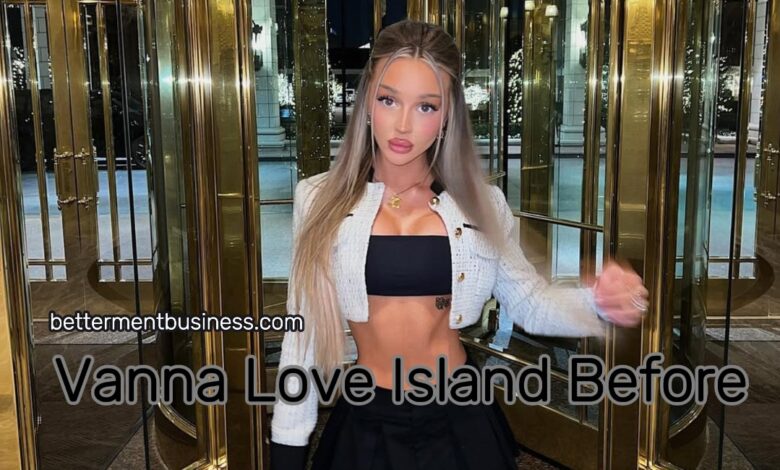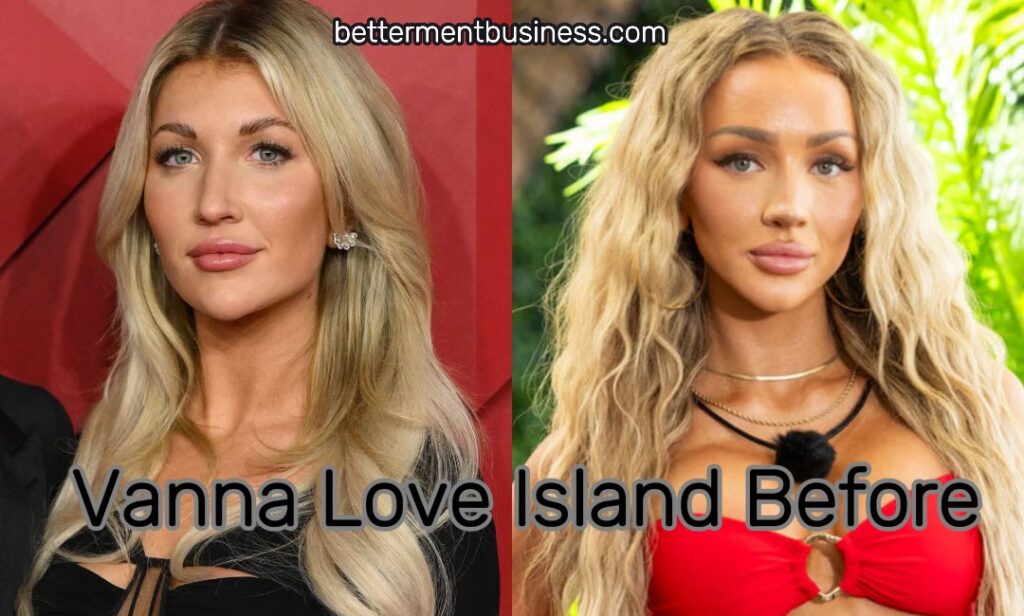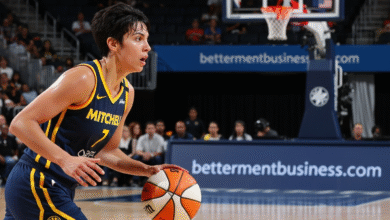Vanna Love Island Before: Exploring the Connections and Drama of Reality TV

Introduction to Vanna Love Island
Vanna Love Island Before has emerged as a significant player in the realm of reality television, captivating audiences with its unique blend of romance and drama. The show is situated on a stunning island locale, which serves not only as a picturesque backdrop but also as a vibrant setting for the unfolding relationships among contestants. Designed to attract viewers who enjoy reality shows centered around love and interpersonal dynamics, Vanna Love Island has quickly garnered attention since its inception.
The premise of Vanna Love Island revolves around a group of singles who are brought together in an idyllic resort setting, where they participate in various challenges and activities designed to foster connections and spark romance. Contestants are frequently seen engaging in social interactions that lead to budding relationships, as well as inevitable conflicts that arise from competing for love and attention. This blend of romantic pursuit and competitive elements provides an engaging viewing experience for audiences who thrive on drama and excitement.
Furthermore, the show’s structure encourages contestants to form alliances and make strategic decisions, adding layers of complexity to their relationships. Viewers are invited to witness the highs and lows of love as the contestants navigate their feelings amidst the backdrop of the island’s enchanting allure. The audience distinctly resonates with the struggles of those seeking genuine connections in a highly competitive environment.
As Vanna Love Island continues to develop its narrative, it draws in fans from various demographics, eager to see how romantic relationships evolve and the connections tighten or fray. The show’s unique premise and captivating location enhance its appeal, promising drama, romance, and unforgettable moments that are characteristic of popular reality television today.
Key Concepts and Themes of the Show
Vanna Love Island Before presents a captivating examination of interpersonal dynamics that underscore its narrative. Central to the series is the theme of love, where contestants are thrust into a world where romantic connections are not only pursued but often manipulated for strategic advantage. This pursuit of love creates an atmosphere ripe for both sincere emotions and calculated decisions, ultimately influencing the contestants’ interactions and alliances.
Competition is another predominant theme within Vanna Love Island Before. Contestants must navigate challenges that test not only their physical capabilities but also their emotional resilience. As they vie for attention and affection, the competitive spirit often results in dramatic confrontations and unexpected alliances. This inherently competitive nature fosters an environment where friendships can form quickly yet dissolve just as rapidly, leading to heightened tension and engagement among viewers.
Friendship plays a complex role within the show, as contestants must balance loyalty to their peers with their personal ambitions. The relationships forged in the villa are often put to the test through jealousy and rivalry, particularly as contestants vie for the affections of the same individuals. Betrayal becomes a recurring element, as alliances are frequently reshaped in pursuit of a more favorable position in the game. This interplay of loyalty and deception enriches the narrative, drawing viewers into the emotional landscape of the show.
Throughout Vanna Love Island, these themes of love, competition, friendship, and betrayal interweave to create a compelling drama that captivates audiences. As contestants navigate this intricate web of relationships, the complexity of human emotions is brought to the forefront, marking it as a significant aspect of the reality television genre. Understanding these key concepts is essential for viewers seeking to grasp the deeper implications of the actions and motivations displayed within the series.
Cast Overview and Contestant Profiles
“Vanna Love Island” presents a diverse ensemble of contestants, each bringing unique backgrounds and personalities that shape the dynamics of the show. The cast includes individuals from various walks of life, offering viewers a blend of perspectives and experiences. Among the standout participants is Mia, a 24-year-old marketing executive from Los Angeles. With a vibrant personality and keen social skills, Mia quickly emerges as a central figure in the show, often caught in the emotional turmoil of developing romantic connections.
Another notable contestant is Jake, a 26-year-old personal trainer from Miami. His athletic build and charming demeanor attract attention, but it is his complex character that keeps audiences engaged. Jake navigates relationships with a strategic mindset, making calculated moves to secure his place in the competition. His story unfolds as one of resilience, as he confronts his troubled past while seeking love on “Vanna Love Island.”
Additionally, we have Emma, a 23-year-old psychology student from Chicago, who adds an intellectual dimension to the cast. Emma’s analytical approach to relationships often prompts thoughtful discussions among the contestants. Her struggle to balance her personal desires with her academic commitments resonates with many viewers, adding depth to her portrayal on the show.
The cast of “Vanna Love Island” also includes several intriguing personalities, such as the outspoken social media influencer, Rick, and the reserved yet insightful artist, Jade. Each contestant embodies a different facet of modern relationships, leading to unexpected alliances and inevitable drama throughout the season. The interplay between these contestants not only enhances personal stories but also reflects broader social themes, making “Vanna Love Island” a compelling study of love and connection in a reality TV format.
Memorable Moments and Highlights
Vanna Love Island Before has become synonymous with compelling reality television, marked by unforgettable scenes that capture the audience’s attention. One of the most iconic moments was the unexpected recoupling that left several contestants in tears, a testament to the emotional stakes involved. The tension that unfolded as couples faced the reality of their connections resonated deeply with viewers, highlighting the show’s intricate dynamics. This moment exemplifies how relationships in Vanna Love Island can shift dramatically, leading to both exhilarating and heart-wrenching reactions.
Another highlight includes the dramatic confessionals where contestants discuss their feelings towards one another. These raw moments, often filled with vulnerability and honesty, allow fans to gain insight into the inner workings of each individual’s psyche. The authenticity displayed during these confessionals not only provides depth to the storyline but also propels narrative arcs that keep viewers engaged. Such pivotal interactions serve as a reminder of the genuine connections that can form in a reality show setting like Vanna Love Island.
The series is also known for its unforgettable challenges that test both compatibility and resolve. In one particularly gripping episode, teams had to navigate a series of trust exercises, leading to unexpected alliances and rivalries. This created a thrilling atmosphere, showcasing the contestants’ competitive spirit while putting their relationships to the test. These challenges have defined the essence of Vanna Love Island, illustrating the struggle between personal ambition and romantic connection, elements that are crucial to the show’s allure.
Ultimately, these memorable moments from Vanna Love Island not only encapsulate the drama and excitement that fans have come to love but also emphasize the emotional depth that underpins the reality series, making it a staple in contemporary television culture.

The Role of Social Media in Vanna Love Island Before
In recent years, the interaction between reality television and social media has become increasingly prominent, and Vanna Love Island Before serves as a compelling case study of this phenomenon. The use of platforms such as Twitter, Instagram, and TikTok has fundamentally transformed the landscape of fan engagement and public perception regarding the show’s contestants and storylines. Social media provides audiences with a space to voice opinions, share thoughts, and connect with others in real time, creating a dynamic dialogue that extends beyond the television screen.
Twitter has emerged as a primary platform for instant reactions to episodes of Vanna Love Island. Fans often utilize hashtags to participate in trending conversations, share memes, and express their support or disapproval of contestants. This immediacy not only fosters a sense of community among viewers but also enables instant feedback to the show’s producers. Contestants frequently engage with fans on this platform by posting updates, responding to criticisms, or even clarifying events that transpired during the show, deepening their connection with the audience.
Instagram, on the other hand, offers a visual representation of the contestants’ lives outside of the reality show, allowing followers to view curated aspects of their personalities and lifestyles. Through high-quality images and stories, contestants give fans an insight into their daily experiences, post-show journeys, and sometimes their perspectives on recent plot developments. This curated portrayal can significantly influence public opinion and alter fan perceptions, as viewers may form attachments based on the persona presented online.
Lastly, TikTok has introduced a new dimension of creativity and interaction among fans of Vanna Love Island. The platform’s emphasis on viral trends enables viewers to create engaging content related to the show, whether it’s dance routines inspired by moments from episodes or comedic skits that parody the contestants. This user-generated content further cements the reality show’s place in popular culture, amplifying viewer engagement while simultaneously fostering communal identities within fan bases.
The Dynamics of Relationships on the Show
Vanna Love Island vividly showcases the intricacies of human relationships within a reality TV context. The show brings together a diverse cast of individuals who quickly become entangled in various social dynamics, ranging from friendships to romantic connections. This environment fosters an intense exploration of attraction, trust, and the challenges of navigating relationships under constant scrutiny.
Friendships often serve as the backbone of Vanna Love Island, as contestants seek camaraderie and support amidst the emotional rollercoaster that the show presents. These bonds are crucial for contestants, offering them a sense of stability in an unpredictable setting. However, friendships can also become complicated when romantic interests emerge, leading to rivalries and conflicts that further fuel the show’s drama. The evolving nature of these connections provides a rich tapestry of interactions that keeps viewers engaged.
Romantic pairings, in particular, are a central focus of Vanna Love Island, as contestants couple up in various configurations, creating an aura of excitement and tension. The dynamics of these relationships shift notably throughout the season, influenced by factors such as jealousy, attraction, and strategic gameplay. As the participants face challenges designed to test their compatibility, audiences witness firsthand how relationships can blossom or falter under pressure. The complexities of love and betrayal highlight the emotional stakes involved, making it an essential aspect of the viewing experience.
The relationships formed during Vanna Love Island reflect broader themes of connection and conflict in human interactions. By examining these dynamics, we gain insight into the behaviors and motivations of individuals when faced with the dual pressures of friendship and romantic interest. This multifaceted approach to relationships is what ultimately makes the show compelling and relatable to its audience.
Controversies and Conflicts
The world of reality television is often characterized by its share of controversies and conflicts, and Vanna Love Island is no exception. Conflicts among contestants can arise from various sources, including romantic rivalries, misunderstanding of intentions, and the pressure of being filmed 24/7. Such tensions not only add dramatic flair to the show but also significantly influence viewer engagement and ratings. The intricate dynamics between individuals on Vanna Love Island often fuel debate and discussion amongst fans, creating a loyal viewer base that eagerly anticipates each new episode.
Producers play a critical role in shaping these conflicts, as they may choose to highlight certain disagreements or romantic entanglements to drive the narrative forward. Editing plays a vital part in how events are portrayed on screen, allowing producers to create an enticing storyline even if it diverges from the actual events that transpired. Consequently, contestants often find themselves in the center of public controversies, sometimes leading to polarized opinions among audiences and even sparking social media debates. The narrative crafted around these conflicts can have cascading effects, impacting the contestants’ personal lives and public images long after their time on the show.
Moreover, the ramifications of such controversies extend beyond individual contestants; entire seasons of Vanna Love Island can be shaped by how conflicts are resolved, or not resolved. For instance, a particularly heated disagreement might engage viewers more deeply, driving them to discuss the outcomes online or to tune in with anticipation for resolution in future episodes. This cycle of conflict and resolution enhances the show’s appeal, making it a breeding ground for discussions on various social topics, including dating culture and interpersonal relationships in the modern age. Through these dynamics, Vanna Love Island continues to evolve as a compelling reality show that reflects societal tensions while serving as entertainment.
Impact on Reality TV Culture
The emergence of Vanna Love Island marks a significant evolution in the realm of reality television, influencing not only its direct competitors but also the broader genre itself. This show has introduced new narrative structures and character dynamics that have captivated audiences, prompting a shift in viewer expectations for such programs. By focusing on interpersonal relationships and the intricacies of attraction, Vanna Love Island has set a precedent for future reality TV formats, emphasizing the importance of emotional engagement and storytelling.
The format of Vanna Love Island has inspired a wave of similar series aimed at exploring the complexities of modern relationships. Other programs have adopted its blend of romance, competition, and social intrigue, leading to an increase in shows that prioritize emotional depth and authentic connections among contestants. This evolution illustrates a cultural shift where audiences seek content that not only entertains but also resonates on a personal level. As such, reality television has evolved from mere spectacle into a platform for exploration of genuine human emotions and interactions.
In conclusion, the influence of Vanna Love Island on reality television is profound and multifaceted. Its implications for future formats and the evolution of viewer engagement highlight a significant cultural shift towards more meaningful narratives in reality TV.
Conclusion: The Legacy of Vanna Love Island
Vanna Love Island has undoubtedly left a significant mark on the reality TV landscape since its inception. Throughout the discussions in this blog post, we explored various facets of the show, including the complex relationships that develop among contestants, the dramatic twists that engage viewers, and the broader implications of such a program within contemporary entertainment culture. The series has become emblematic of the challenges and triumphs faced by individuals seeking love in often high-pressure environments.
The connections forged on Vanna Love Island, whether successful or tumultuous, provide a compelling narrative that resonates with audiences. These interactions not only entertain but also spark conversations about romance, vulnerability, and authenticity. Viewers often find themselves invested in the contestants’ journeys, which reflects a deeper human desire for connection and understanding. The blend of reality and drama that Vanna Love Island presents serves as a mirror to contemporary societal norms surrounding dating, relationships, and competition.
Furthermore, the legacy of Vanna Love Island extends beyond its regular episodes. The show’s cultural impact and its ability to generate conversation on social media platforms have solidified its place in reality TV history. Participants walk away from the experience with memories that shape their lives, often using their time on the show as a launching pad for public personas or influencing future projects and collaborations. In this way, Vanna Love Island plays a crucial role not merely as entertainment but as an influential force in the lives of both its cast and audience.
In essence, Vanna Love Island is more than a gathering of singles seeking romance; it stands as a testament to the complexities, emotional depth, and entertainment value inherent to reality television. The conversations and connections it fosters will continue to resonate, ensuring that its legacy is felt for years to come.
Also Read on bettermentbusiness.com



